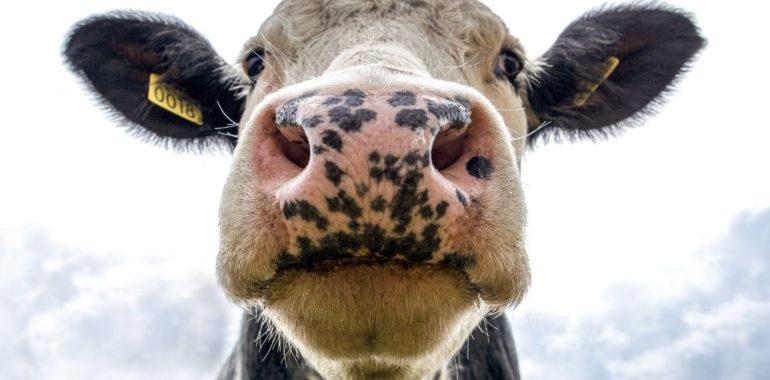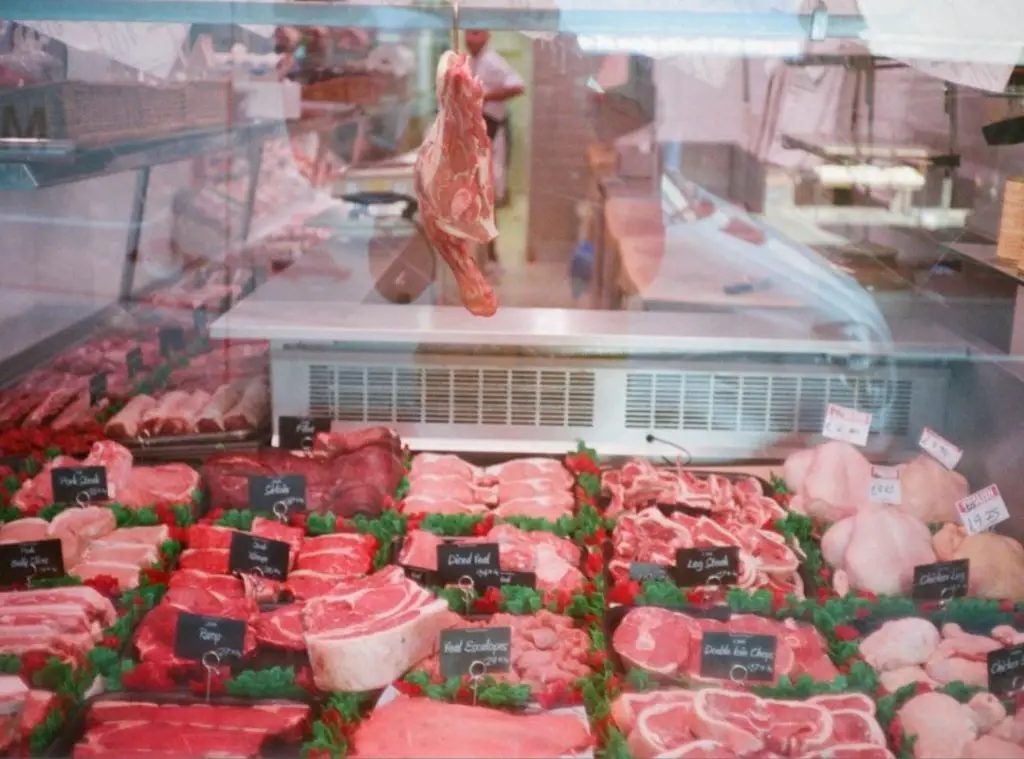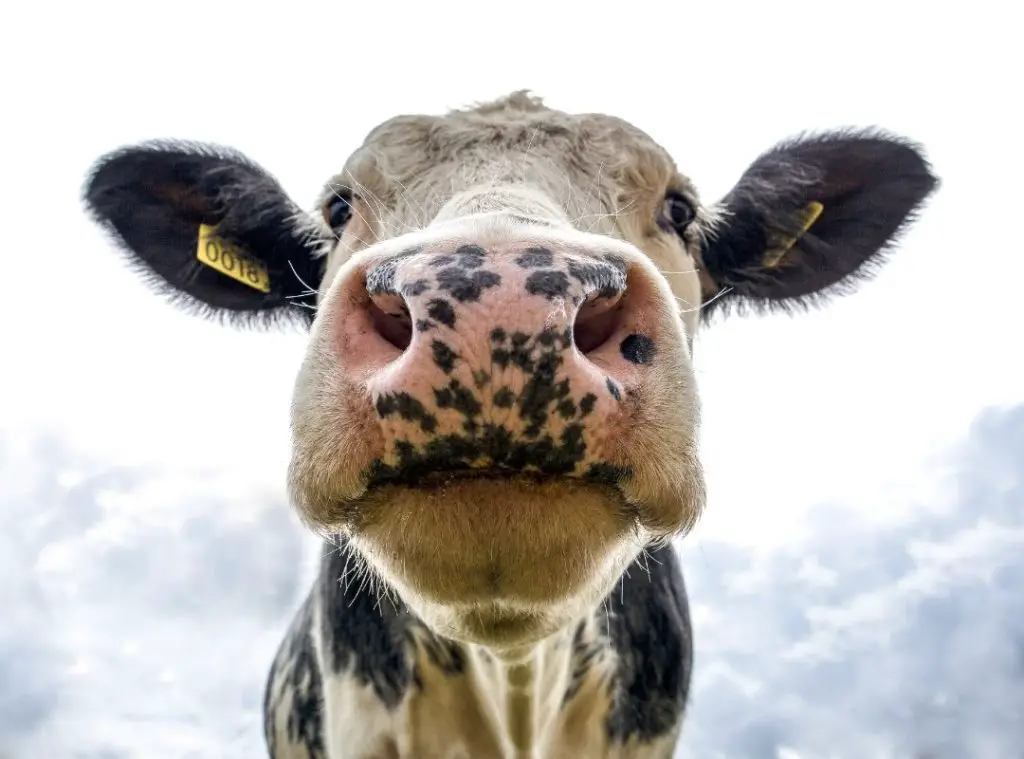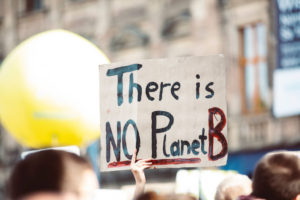What Meat is Worst for the Environment?

What Meat is Worst for the Environment?

There has been a big push lately for people to eat less meat due to its impact on the environment. All food production takes a toll on the environment due to the amount of water and energy used, pollution and toxic byproducts created and greenhouse gasses (GHG) emitted in the process. But some food products cause more environmental impact than others. And most animal products are at the top of that list. Let’s take a look at which type of meat is worst for the environment, and which ones have a lower impact overall.
What does “bad for the environment” mean anyway?
First we need to define what we mean when we ask a question like, “What is Worse for the Environment, Chicken or Fish?” There are numerous different types of environmental impacts. How much greenhouse gas is produced? How much water has to be used? How many pollutants are created? How toxic and life-threatening are those toxins?
And this is just the tip of the iceberg, really. Product A might have a lower carbon footprint than Product B, but it creates a lot more water pollution from runoff. So which one of these is “better for the environment?” It can be a tough call.
In this particular case, let’s stick to comparing GHG emissions (carbon dioxide, methane and other gasses which contribute to climate change) for different sources of protein.
Studies on Animal Products and Environmental Impacts
The two main studies I am using for comparison are the following. You can visit these studies for much more in-depth data on the subject of meat, food production and their environmental impacts:
- Study A: Environmental Working Group’s Meat Eater’s Guide Report.
- Study B: Environmental Impacts of Food by Our World In Data (mostly based on data from a study published in the journal Science).
These two reports didn’t completely agree on which meat is the worst in terms of carbon and other GHG emissions. Study A says lamb is the worst, Study B says beef is the worst. See below for my thoughts on what might cause these different results.
Regardless of these discrepancies, and the fact that they each came up with different total estimates for greenhouse gas impact in each category, they generally agree on the order of the protein types (which ones are worst and best) so there are some common results we can learn from.
The Worst Meats for the Climate Ranked*

- #1 (and #2): Beef and Lamb. Based on the studies I looked at, one says that beef has the highest greenhouse gas emissions, the other says lamb/mutton. Regardless, both beef and lamb are pretty bad.
- #3: Cheese. Yes, this animal product, even though it’s not meat, ranks surprisingly high in terms of emissions.
- #4: Pork.
- #5: Poultry (chicken, turkey).
- #6: Eggs.
*In terms of greenhouse gas emissions and based on the two studies referenced above.
A note on fish:
Some types of fish are also pretty high on the list of greenhouse gas emitters but these two studies didn’t compare the same fish products. Study A included farmed salmon (placed just below pork in terms of impact) and canned tuna right below chicken. Study B included farmed shrimp/prawns (placed quite high, just below beef and lamb in terms of impact).
Why do these two studies show different results?
I can think of a couple possible reasons for the discrepancies between beef and lamb specifically. It looks like Study B broke beef into two groups, beef herds (cattle raised to be eaten) and dairy herds (cattle raised for milk). Study A only has one category of beef, which may include dairy herds as well. Combining these two and averaging the impact could lead to an overall lower emissions number for beef.
The other possibility is that due to the fact that one of these studies was based in the U.S. and the other in Europe, it could be that beef doesn’t need to travel as far to get to U.S. markets, and therefore buying beef in Europe leads to greater emissions. Or perhaps their lamb production is less environmentally intense there, leading to lower impact numbers for lamb compared to beef.
Or there is always the possibility that one or both of these studies are biased towards or against a specific type of meat (like if the beef industry sponsored a study you would expect it to downplay the environmental impacts of beef), although I found no indication that these studies were sponsored by any corporate interests.
Easy Ways to Reduce the Carbon Footprint of Your Food
Reducing your meat consumption is one of the best things you can do to reduce your environmental impact and your personal carbon footprint. If you’re not going to eliminate meat from your diet entirely, you can still make a positive impact by choosing lower-impact meats over high-impact ones.
- Eat less beef. Beef creates about 2x the greenhouse gas emissions as pork, 4x the emissions as chicken and 13x the emissions of bean, lentils or tofu (Environmental Working Group). If you eat a lot of beef, try switching to chicken, fish or pork for some of those meals.
- Start a Meatless Monday. Try going meatless for a day, and make it a weekly event. If you are not used to cooking vegetarian meals, there are plenty of recipes online to experiment with until you find some dishes that appeal to you.
- Cut back on the cheese. Get that sandwich or omelette without cheese and reduce your impact.
- Reduce meat portions. Think of meat as a side-dish or as a way to flavor your food rather than as the main course. Take a pack of ground beef and split it in two, putting the other half in the freezer. Do the same with a pack of chicken thighs or pork chops. Fill in the rest of your meal with more pasta, rice, beans and/or veggies and you will likely find that every dish doesn’t need to be piled high with meat to be satisfying.
- Avoid foods that are air-freighted. This can be difficult to tell, because the food at your grocery store won’t usually be marked in this way, but air shipped foods have a much higher carbon footprint than those that come by land or boat. If you see a highly perishable food (like asparagus, green beans or berries – these don’t stay good for long) and the label gives a country of origin which is far away, likely it was air-freighted and best to avoid.
- Waste less food. All food production creates uses water, chemicals and energy, leading to carbon emissions and pollution. Strive to waste as little as possible. We have some tips on how to waste less food.







Great article. I find it hard to learn my dependency on cheese but the others were no problem to reduce or eliminate. Regarding making vegetarian meals – when I transitioned to partial vegetarian I still made my favorite meals using plant-based or soy products. In some cases I was experimenting with different spices that I didn’t before.
Yeah, I love cheese too. My biggest challenge though is finding something my S.O. will eat. He wants meat or fish every night.